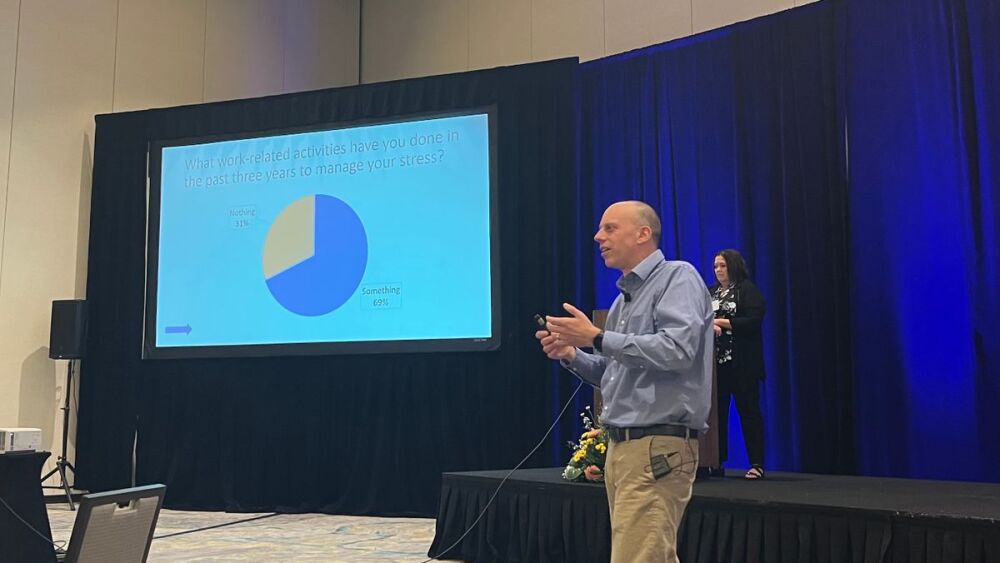In the “What paramedics want in 2023” digital edition, sponsored by Pulsara, industry leaders offer their analysis and tips for how to nip provider stressors at the bud and mitigate the downstream effects of understaffing. Download your copy today!
SAN ANTONIO — Each year, EMS1, Fitch & Associates and the EMS Survey Team check the pulse of the industry in the EMS Trend Report. The 2023 EMS Trend Survey uncovered alarming stress levels causing providers to rethink their career path, as their rapport with patients, their own relationships and their health suffer.
In a special session at Pinnacle 2023, Lexipol Editorial Director Greg Friese, MS, NRP, and Fitch & Associates’ Senior Partner Roxanne Peek, MBA, explored the findings and provided insight into changing attitudes and solutions.
Following are 3 takeaways to improve your agency’s recruitment and retention.
1. How to improve leadership
In the 2023 EMS Trend Survey, 99% of respondents identified poor leadership as their No. 1, 2 or 3 most stressful aspect of their job.
How do you improve leadership? Peek and Friese identified the following solutions:
- Allow employees to shadow you – let them see what it is that you do
- Manage by walking around – you have to be where the people are doing the work
- Focus on core values identified by past survey respondents: honesty, integrity and transparency
- Focus on the culture you’re fostering
- Implement leadership training – only 42% of respondents report their agencies utilize formal internal leadership training (only 14% frequently)
2. Provide wellness support providers will utilize
One finding that sparked discussion amidst Pinnacle attendees was the utilization of wellness programs.
Friese pointed out, despite the significant amount of time, effort and resources departments devote to wellness programs, respondents’ reported utilization is low for peer support (8%), EAPs (7%) and after-action reviews/CISM (7%).
In the “What paramedics want in 2023” digital edition, Rachelle Zemlok, PsyD, strategic wellness director, Cordico/Lexipol, encourages employers to allow employees time during their shift to access resources. Though stress is almost universal in those who responded to the 2023 EMS trend survey, 43% of respondents report due to staffing shortages, they have had less time to access health and wellness support. “When organizations can provide support for individuals initiating or getting help while on duty, this can be huge and might get the ball rolling for a lot of employees,” Dr. Zemlok writes.
3. Communicate
Comparing field provider responses to EMS leader responses unveiled numerous discrepancies in perception by title, in areas from how big of an impact compensation has on retention, to how staffing challenges have impacted 911 response times.
The best way to know what wellness solutions will best serve your employees, identify how you as a leader are contributing to providers’ stress levels, and to eliminate the discrepancies between provider and leader perceptions? Ask them.
Only 38% of respondents reported their agencies utilize employee engagement surveys (only 12% use them more than occasionally)
As Friese, Peek and attendees noted, perception discrepancies present an opportunity to share data, strategies and resources. And communication can’t reply on one mode – take the time to communicate through a variety of mediums, be it message boards, virtual town halls, newsletters, etc.
Additional resources
- What paramedics want in 2023
- What paramedics want in 2022
- Roundtable: Action steps to move EMS forward
- How leadership transparency impacts EMS
- What cops want in 2023
- What firefighters want in 2022















